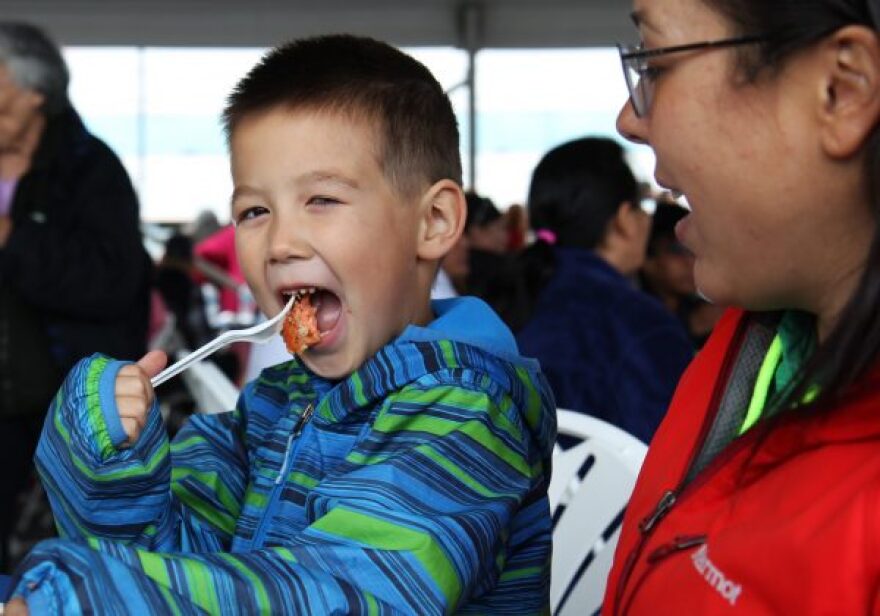On August 10, the state celebrated its first official Alaska Wild Salmon Day. The feel-good day is focused on a fish that means many things to residents, said attendees at a community salmon bake hosted by the Bristol Bay Native Corporation in Anchorage to mark the occasion: It's food that fills the freezer, a living and a way of life and a critical piece of the state’s economy.
Bryce Edgmon, the Dillingham representative who sponsored the bill marking the day, said it's also about reminding Alaskans that salmon is a resource that needs protecting. He said people from his region have worked hard to keep salmon ecosystems intact.
“That was a very important component of the bill, and we got a lot of support for it,” he said.
The mood at the cookout was one of appreciation. Out of the hundreds of people who came to fill their plates, many grew up fishing on Bristol Bay, and they had a lot to say about what it that meant to them.
“It’s a way of life,” said Wayne Schroeder. “I’ve been eating it for 70 years, so it hasn’t failed me yet."
MaryAnn Jones said she got a new appreciation for the local bounty when visiting family in Virginia. She just had to have her wild Alaska salmon, she said, and she struck out at Costco and Sam’s Club, where she only found farmed fish. Eventually she got what she was looking for at a specialty store—for $36 a pound.
Jones said her love of salmon started early, when she helped her family with their catch in Naknek.
“My mom started us fishing when we were five and six years old, and we would haul the fish up the beach one at a time, and we felt like we were so big and so strong,” she said. “Fishing just helped us to realize how life continues to go on. You know, it’s a renewal, it’s a resource, it’s something that will always be there, we hope.”
Bristol Bay Native Corporation Board President Joseph Chythlook said that if salmon is indeed always going to be there, people need to stand up for it—on Salmon Day, and every day.
“Everything we can do as different groups that have fought to protect our salmon the last few years—that needs to continue and remain intact, because the issue of mines and whatnot that can hurt the habitat of our salmon is still there,” he said. “So we can’t stop and say that it’s over until it’s over.”



